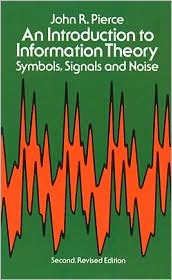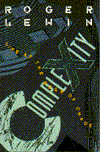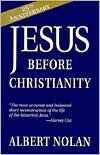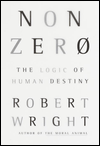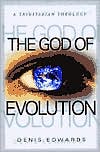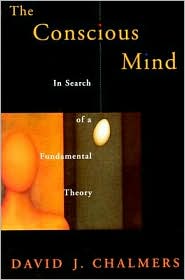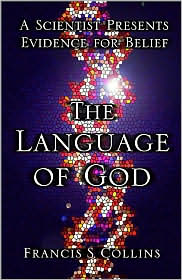Relationalism and Caritas
Sidestepping that issue for the moment, I posit that entities (under the working assumption that they even exist) may (or, under other circumstances, may not) relate to one another in ways that give rise to emergent wholes greater than "the sum of the entities." My philosophy of relationalism is acordingly emergentist and holistic. It has it that the emergent properties that distinguish holistic entities — wholes that are greater than the sum of their parts — characterize most or all of reality.
 I'll call such relating entities "relatants." The relatants of such a holistic system can and do interact in ways that produce "order for free," a phrase Stuart Kauffman uses in At Home in the Universe to express the idea that the evolving biosphere on Earth "self-organizes." For Kauffman, self-organization is the handmaid of natural selection in explaining (along with random genetic mutations and similar sources of heritable variation) how new species arise. To him, each new species is a unique manifestation of order for free.
I'll call such relating entities "relatants." The relatants of such a holistic system can and do interact in ways that produce "order for free," a phrase Stuart Kauffman uses in At Home in the Universe to express the idea that the evolving biosphere on Earth "self-organizes." For Kauffman, self-organization is the handmaid of natural selection in explaining (along with random genetic mutations and similar sources of heritable variation) how new species arise. To him, each new species is a unique manifestation of order for free.So relationalism, holism, and emergentism are all synonyms, roughly speaking, in my estimation.
In self-organizing systems, the relatants' interrelationships have to be just so for new "reality" — new order for free — to emerge. Kauffman's research has pinned down some of the necessary characteristics of systems that, as I put it, "go critical" and become evolutionarily fecund. These characteristics don't pertain just to biology, but also to human culture, technology, and economic marketplaces. One of these salient characteristics is that the degree of interlinkage among relatants must be rich but not too rich. If the interlinkage is just right, the system gravitates to and operates in a dynamical zone called the "edge of chaos," where new order can, first, emerge, and then stick around to undergo further evolution.
It is also possible to apply these self-organizational concepts at multiple levels or tiers of complexity. For example, a cell, an organ, a developing embryo, an ecosystem, and a bioshpere all can be considered examples of such self-organizing, "complex adaptive" systems. A holistic, emergent whole which appears at one level becomes a candidate relatant at the next higher level.
Accordingly, much of what we think of as reality is something of a "house of cards," dependent on certain finely tuned and balanced relationships among the "cards" (the relatants) themselves, all taken with respect to a "base" or "platform" (the next lower level of complexity) which itself is yet another house of cards!
We can conceivably descend from the level of biology to that of chemistry and then to that of physics in this way ... and eventually we encounter those hard-to-answer questions about how quantum-level phenomena undergird the "hard" reality we deal with in classical physics. You've heard Stephen Hawking's anecdote about "it's turtles all the way down"? In this case, it's relatants all the way down.
To me, all this patterns with my religious convictions as a Catholic Christian. It does so in at least two ways.
First, it seems to me that the Gospel message is basically a call to love God without stinting, to love our neighbors in the same way, and even, as Jesus said, to love our enemies.
Put another way, the message of the Gospels seems to be that God loves us all without reservation or qualification. The Father sacrifices the Son in a maximally painful, maximally ignominious way so that our sins and shortcomings do not prevent our entry into the kingdom of heaven. The relationship between us and God as "relatants" must accordingly be one of love.
Likewise, the relationship between us and our fellow humans, as "co-relatants," must be one of love.
Out of these relationships of love will — not may, but will, say the Gospels — emerge the kingdom of heaven.
That's the Gospel message in a nutshell. How relationalist, how emergentist, how holistic can you get?
 The second way in which my relationalist philosophy patterns with my religion is the idea that Christians (for the most part, Unitarians and some others notwithstanding) can't talk for long about God without recalling that God is actually three "persons" in one "being." The Holy Trinity consists of Father, Son, and Holy Spirit. (I'm getting these ideas, by the way, mostly from Denis Edwards' The God of Evolution: A Trinitarian Theology. Edwards is a Catholic priest with an interest in reconciling evolution science with religious understanding. My apologies to him if I've misconstrued his beliefs.)
The second way in which my relationalist philosophy patterns with my religion is the idea that Christians (for the most part, Unitarians and some others notwithstanding) can't talk for long about God without recalling that God is actually three "persons" in one "being." The Holy Trinity consists of Father, Son, and Holy Spirit. (I'm getting these ideas, by the way, mostly from Denis Edwards' The God of Evolution: A Trinitarian Theology. Edwards is a Catholic priest with an interest in reconciling evolution science with religious understanding. My apologies to him if I've misconstrued his beliefs.)These three persons are said to "abide with" one another eternally — even if the Holy Spirit "proceeds from" the Father and the Son. The three holy persons are, in effect, "relatants" whose relationship is said to be one of pure, unadulterated love.
I must now acknowledge that what I am about to say is not universally accepted theology in my church or elsewhere. I imagine that the "abiding with in love" which the three persons of the Holy Trinity engage in furnishes what I might term a metaphysical base or platform for the entire material universe which Christians call God's Creation.
That is, when the divine Godhead or Holy Trinity "empties itself" (to use well-known theological jargon pointed up by Fr. Edwards' book) and "makes room" for the physical universe to appear and evolve, the principle of "abiding with" carries over to material reality. If created relatants "abide with" one another in the "proper" sorts of relationships — very loosely speaking, "loving" ones — then "good" things will happen. There will be new, emergent instances of order for free that piggyback upon one another in a multi-tiered, evolving arrangement that can produce, eventually, creatures for whom the word "love" has far richer overtones than apply at earlier, lower levels.
Love itself evolves, becoming richer and more complex.
So love is, at base, any "proper" or "good" or "fecund" schema of relatants' interrelationships, leading to the successful emergence of new order for free, blessed by God.
The emphasis on love (charity, or caritas) in Christian belief /practice goes along with its moral and ethical "rules" — thou shalt do this, thou shalt not do that. I see these rules as guidelines for knowing what relationships are indeed loving, good, proper, and evolutionarily fecund in a God-created world.
I have no intention of making any attempt to justify the various moral precepts that are called into question today by those who feel Christianity is historically too repressive. I can't really say that I, personally, accept some of these hot-button dictums. (For example, my church says ysing artificial birth control is wrong, but the "rhythm method" is fine; I don't get that.) But I can say that I believe the morality taught by my church — assuming the church has got it right in all its details — is a way of guiding us to properly loving, good, evolutionary fecund relationships among ourselves and with God.
Hence, I see the moral and ethical teachings of religion as the bylaws of an enterprise in evolution ... not of the biological variety, but cultural evolution.
And I see "creation," understood as the act by which God brings the universe into existence out of nothing, as being nothing like our usual, common-sense notion of "making" something. Rather, God "empties himself" or "self-vacates," and a world appears.
We don't have a way of imagining this kind of "negative creation," so we insist of visualizing God as making everything as if out of molded clay or the gears and cogs of a pocket watch. From this inadequate sort of metaphor comes creationism and all the fuss and fury over intelligent design and the theory of evolution.
My philosophy of relationalism doesn't jibe with traditional creationism or with so-called Intelligent Design. It does jibe with theories of self-organization à la Stuart Kauffman, taken as scientifically valid adjuncts to standard neo-Darwinian evolution theory.








